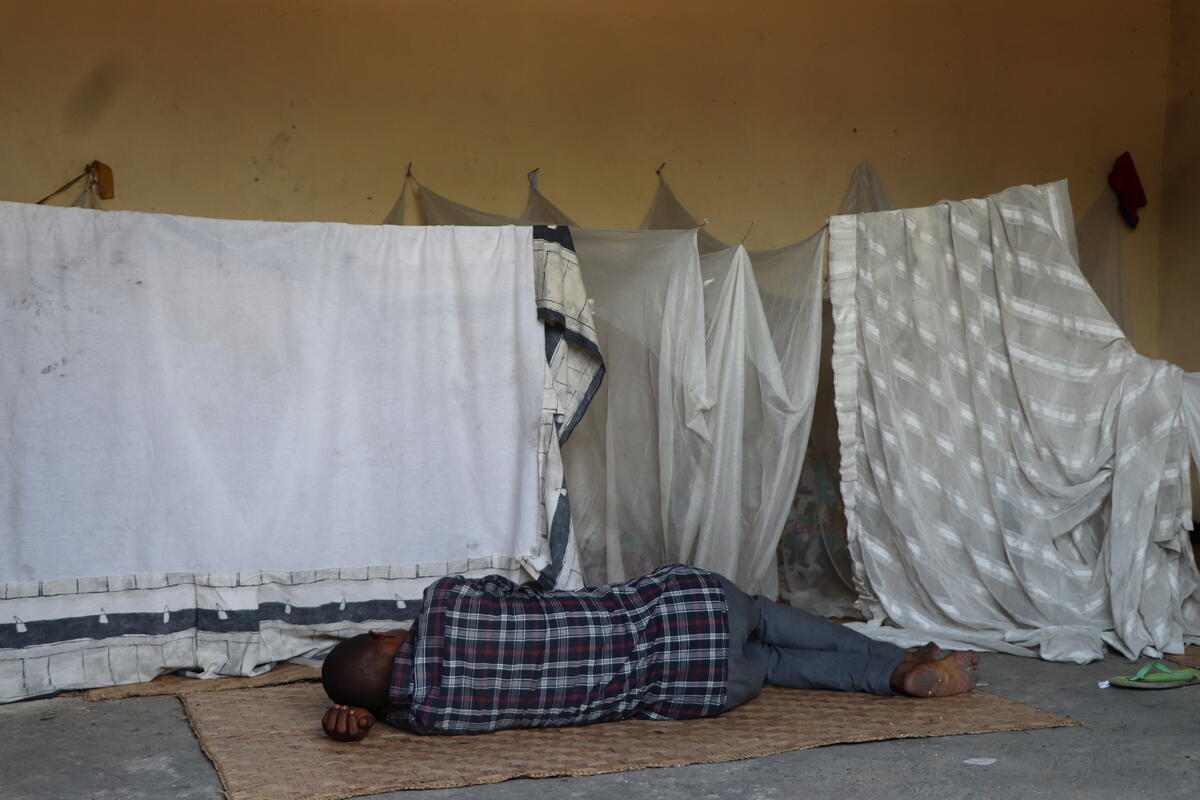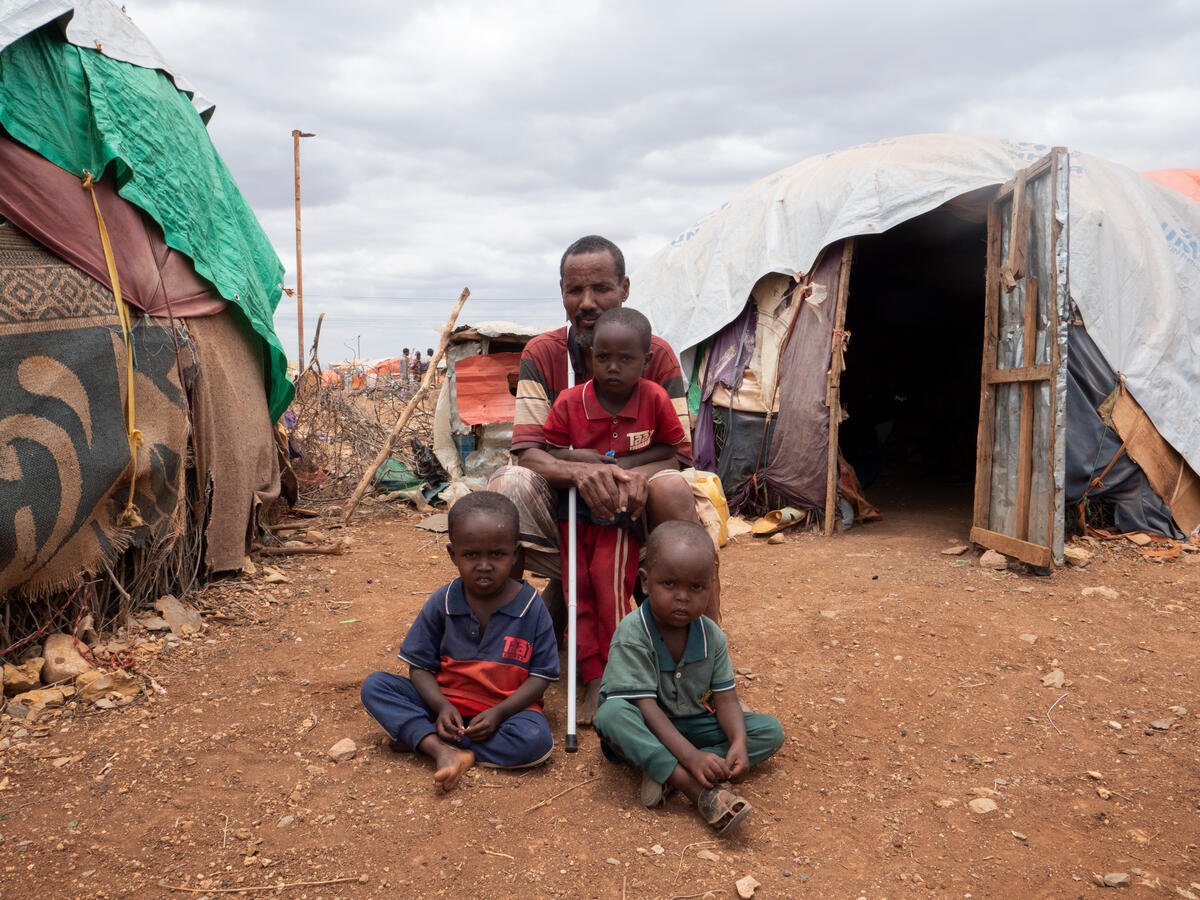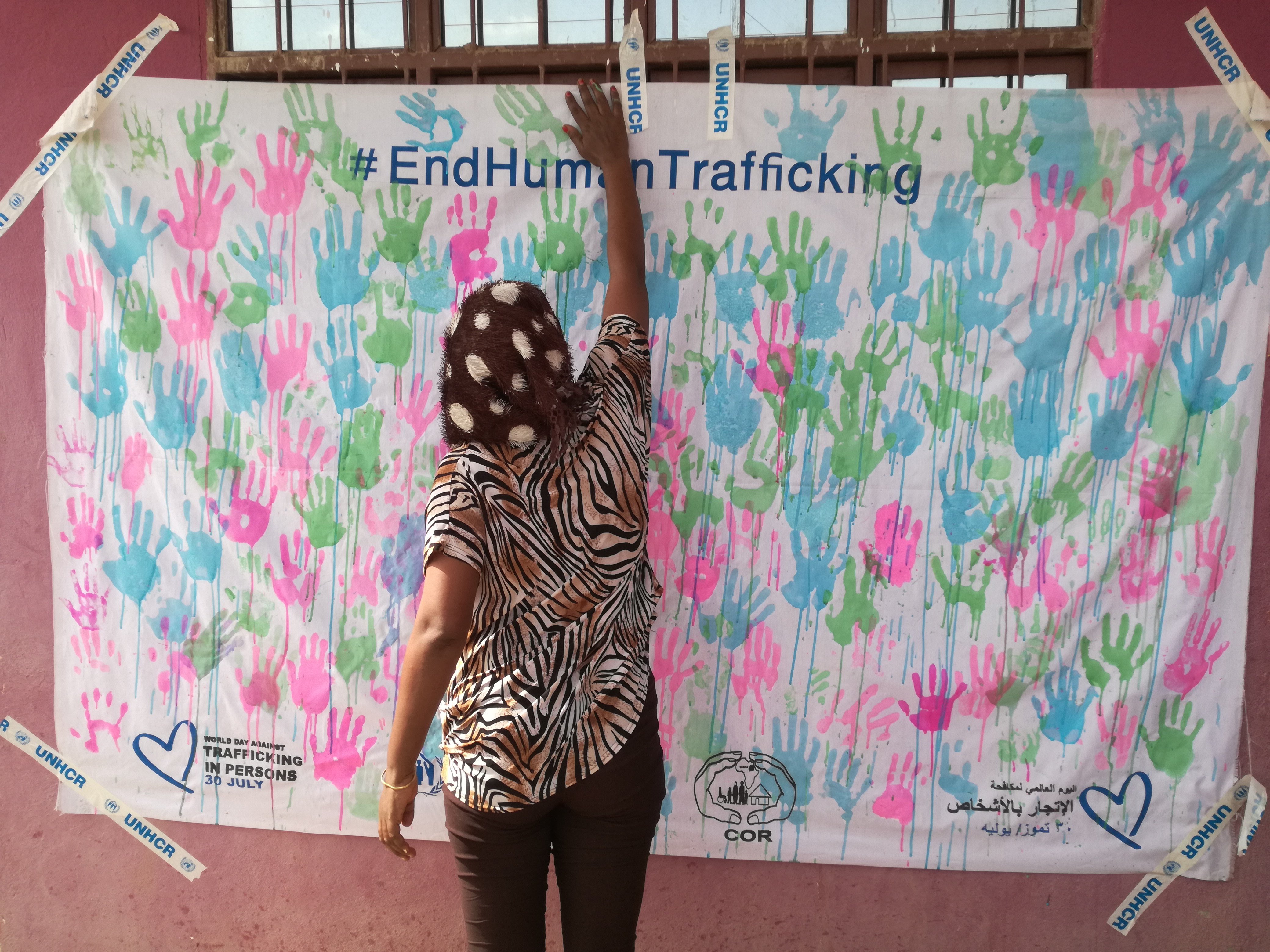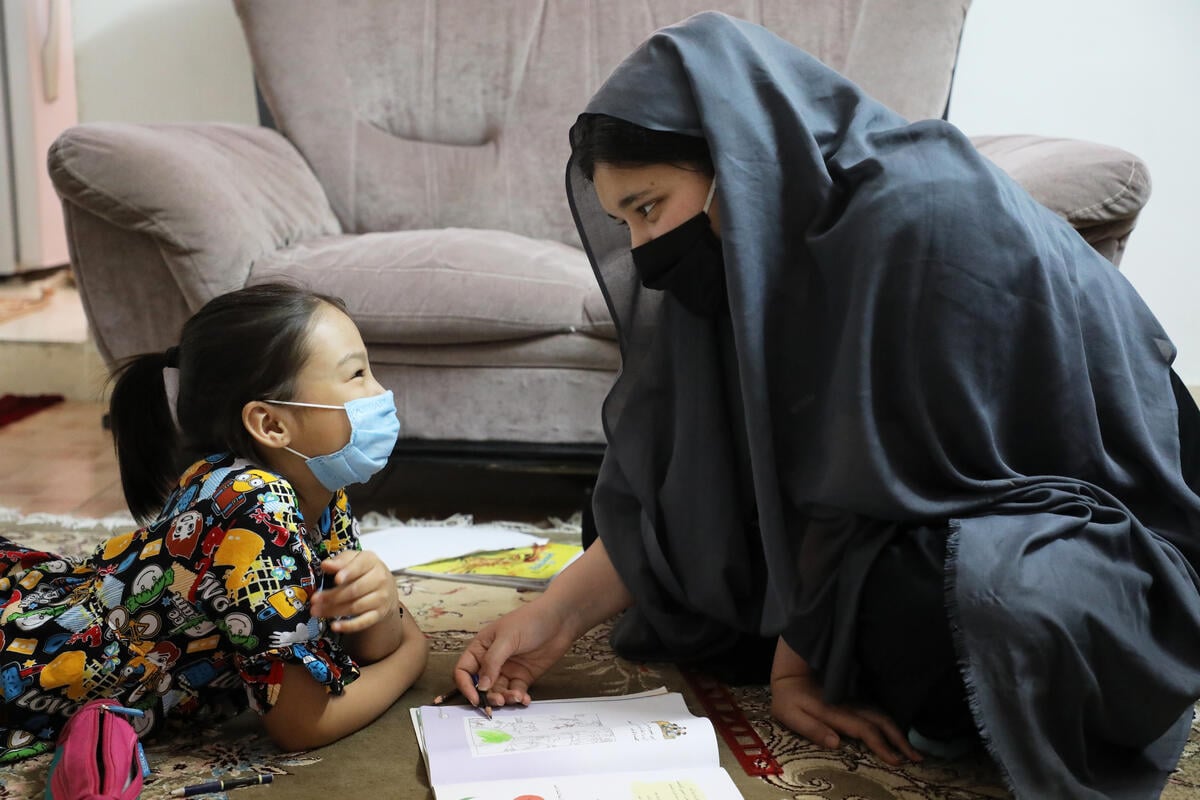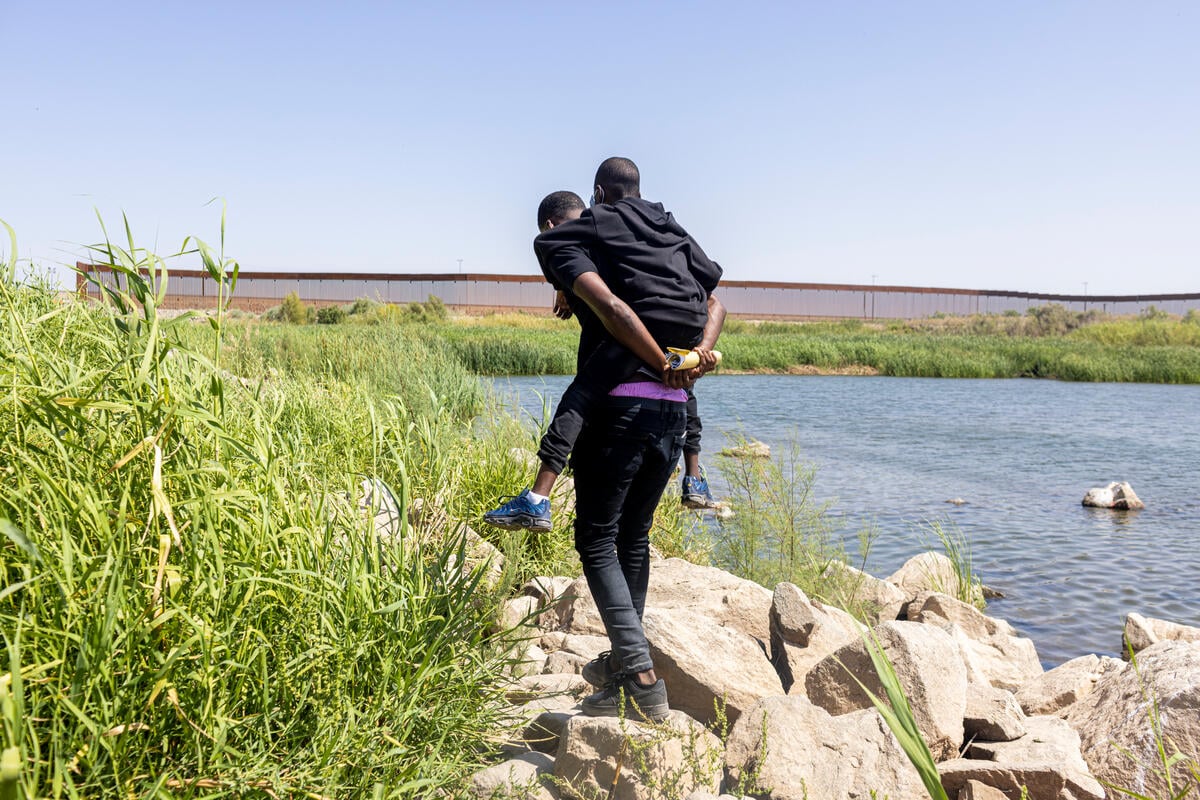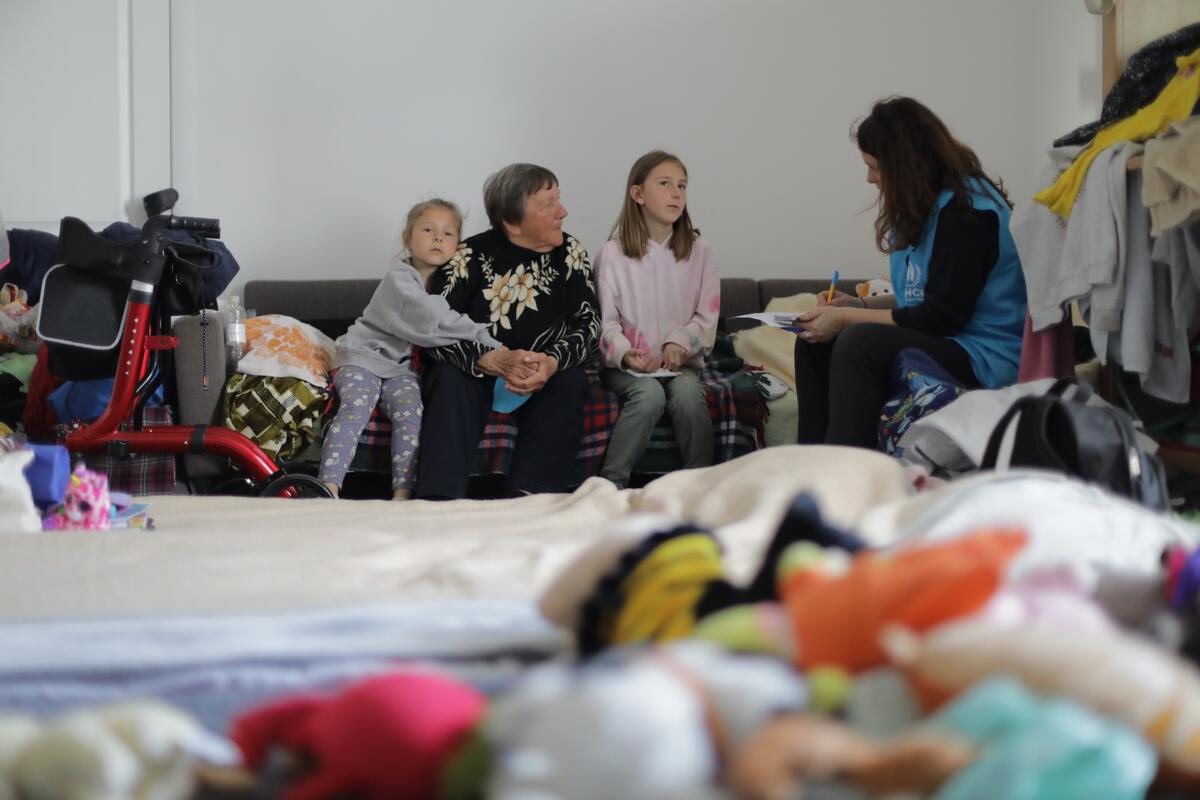UNHCR calls for revitalizing of refugee protection
UNHCR calls for revitalizing of refugee protection
Responding to a call by the UN High Commissioner for Refugees that was strongly endorsed by Secretary-General Kofi Annan, States have expressed widespread support for UNHCR's global consultations on strengthening implementation of the 1951 Refugee Convention and examining areas it does not cover.
Addressing the 51st annual meeting of UNHCR's Executive Committee on Wednesday, the agency's Director of the Department of International Protection, Erika Feller, explained the objectives of the consultations as:
- Re-affirming the full and effective implementation of the 1951 Convention by the States Parties on the occasion of its 50th anniversary;
- Stock-taking of the law to see how the Convention is being understood and applied today;
- And moving "the international community towards practical, cooperative efforts to deal with new or emerging problems" not covered by the Convention.
Feller cited four specific problem areas not covered by the Convention that cut across geographical boundaries:
Protection to refugees in mass influx situations, particularly when their presence drags on for years. Such protracted refugee situations often lead to dwindling international support and sorely test the hospitality of the local population, provoking hostility and sometimes violence toward refugees. "In mass influx situations, where do the responsibilities lie for meeting protection needs; with what guarantees for physical security; over what length of time; under what conditions; and how should such responsibilities be apportioned more equitably?" Feller asked. "These questions need to be put on the table for international reflection."
Protection for refugees arriving as individuals. Feller said that States have increasingly restricted access to territory or asylum procedures; detained asylum seekers; reduced welfare benefits and curtailed self-sufficiency programmes; and restricted family reunification rights of refugees. Governments are concerned about over-burdened asylum structures; rising costs; mixed groups of arrivals from a variety of often-distant countries; and the "significant misuse of asylum systems in several parts of the world." The international community needs to "put in place processes which responsibly identify who is a refugee, who is otherwise protection-vulnerable and who is not deserving of protection, and who should be rejected and returned home in a safe and dignified manner," Feller said.
Protection challenges arising from the asylum/migration nexus. "How to disentangle refugees from the net of migration controls and ensure their access to protection without compromising the right of any state to control its migration?" Feller asked. "The problem of irregular migratory movements which are not protection-propelled is, of course, not a refugee problem per se," she said. "It nevertheless becomes a concern in the refugee protection context when ..., for example, there is misuse of the asylum processes by would-be migrants lacking regular migration options; where asylum seekers resort to migrant smugglers ..., or where laws introduced expressly to stem or control migration have the effect ... of impeding access of refugees to systems for the proper determination of their claims, or to needed protection." A sentiment of "too many foreigners - enough" also has led to hostility towards refugees.
How to find solutions for refugees that are both lasting and protection-based. Feller said voluntary repatriation - the most desirable solution for refugees - is hampered in many parts of the world by endemic violence, lingering insecurity or resurgence of conflict. Unfortunately, return in less than good circumstances, often induced, is more the norm than the exception these days, she said. And "in protracted refugee situations, the will to find interim solutions is lacking", often for political or financial reasons. At the same time, resettlement to a third country is a limited option, but one that needs closer examination as a burden-sharing mechanism to relieve pressure on first-asylum states.
Although many governments have expressed support for the consultations, some states had earlier expressed fears that the dialogue will become too broad in scope or might draw UNHCR into issues outside its mandate, Feller said.
She said the consultations would likely include a series of "round-table" discussions involving experts from governments, NGOs and academia, as well as discussions within the framework of the 57-member Executive Committee.
Feller also noted that while many governments voice strong support for protection, it is in practice the most disliked of the functions entrusted to the High Commissioner.
"That it is the office's central responsibility is often repeated and UNHCR is encouraged to give it absolute priority," she said. "At the same time, it is the exercise of this responsibility which attracts the greatest suspicion from a number of states and brings the office most often into confrontational situations. Why this disjunction between words and deeds?"



